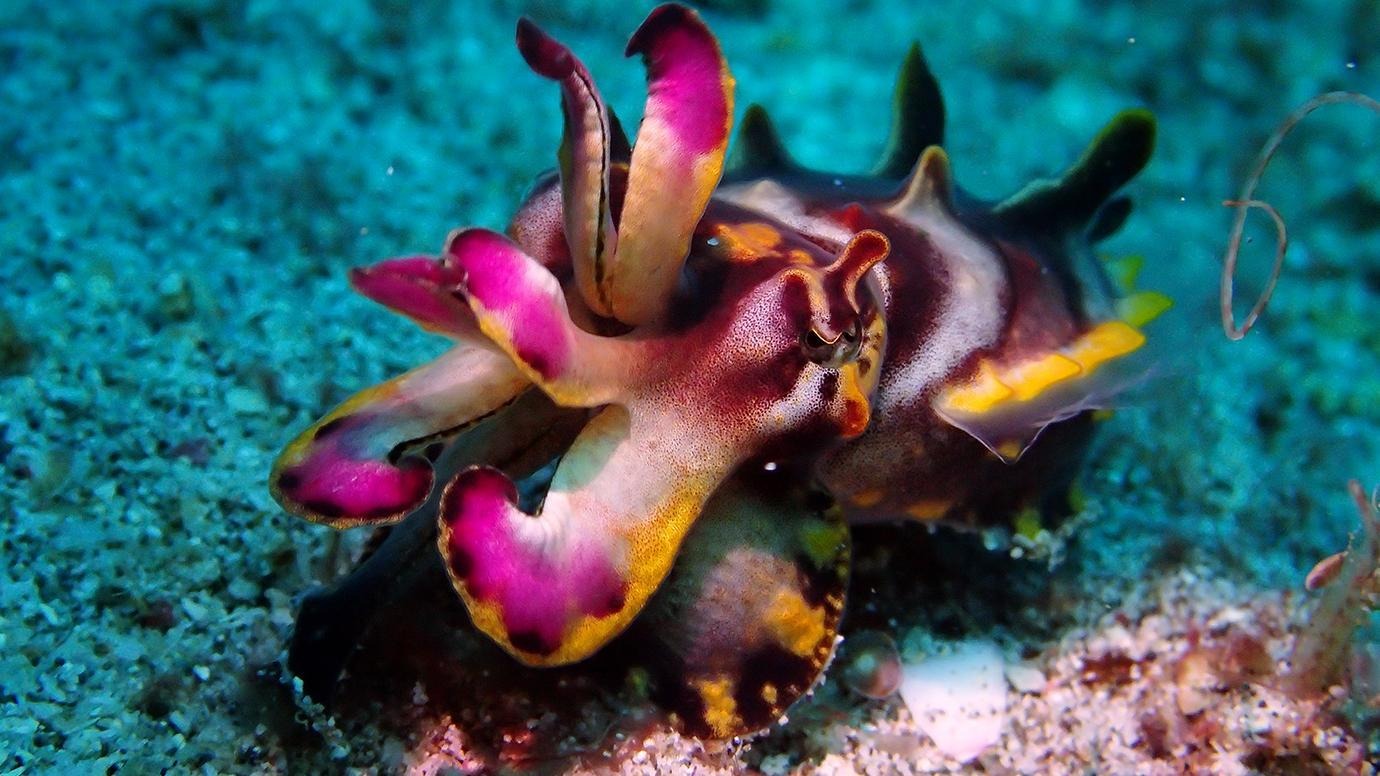Fungi won’t trade if the tree is not giving enough nutrients. So while they don’t trade for profit they sure as hell aren’t engaging in charity.
Mutual aid, in other words.
A marketplace, of sorts
No. Flat out no. There is no competition and they’re literally providing what they are capable of to take care of the others’ need. Mutual aid is not a marketplace and the fact you instinctually thought of it that way tells me you need a book on capitalist realism.
There’s no competition between trees? Hmm…
Not all competition is mediated via markets. Mushrooms will compete by injecting themselves into their adversaries using their own internal pressure.
Yeha, but they are showing an instance of nature in which things work one way and ask "why can’t humans XYZ if even a mushroom can? ", but there are also plenty of instances in which nature is savage.
There is a constant war in the roots of trees, does that mean humans should be in constant war?
Plus, there IS a profit incentive. Those mushrooms are trading. What they get in return is the profit incentive.
Trading for food to eat is now “profit incentive”? How is there profit if you consume what you take?
Edit: and don’t get me started on the violence used in our own market systems. Thankfully Mushrooms learned long ago to eat the rich, because “surplus profit” are just resources that aren’t being used.
Where in that response did you see the word capitalism. Economics exist outside of your agenda/baggage.
“market place” is a concept of competition in contrast to Kropotkin’s concept of mutual aid
So in dum dum terms the trees are keeping the fungus as a pet?
As much as a person can keep an outdoor cat as a pet…
More like two people sharing resources to reproduce more effectively while having a gun pointed towards each other at all times
There likely could be other benefits to them sharing such as:
- when there is more than they can use, particularly that the mushroom does not like in their environment
- producing more leaves is likely highly beneficial for the mushroom, for shade both living and fallen, nutrients and cover with fallen leaves.
Similar for the tree, but also mushrooms are recycling minerals from dead material.
I don’t know if there’d be “stingy” trees (aside from vastly different nutrient needs), I could see it more of miscommunication or having too much difference with language/biologic pathways. EDIT: Also I gotta imagine that giant trees don’t even bother counting it for mushrooms so long as they aren’t stressed. Sugar water is in the grid, take as much as you want.
I bet you chestnut trees are stingy little assholes. Prickly fucks.
At first, I read that as you accusing them of being a stingy asshole chestnut tree and I was about to inform you that you were in fact talking to a lemon, not a tree 😄
Trees that rely on myco networks usually only get giant because of previous myco networking bonds, which funnel excess nutrients between not just the fungi but also other trees within the system. And depending on the involved species, this sometimes includes multiple plant species exchanging nutrients.
Yeah, bacteria secreting digestive enzymes would have been a better example.
change your name. Assuming you aren’t underage so that psychotic pedo fuck would’t be interested.
I assumed it was ironic. Don’t ya think?
Friendly reminder that cooperation is mutually beneficial and the mathematical solution to the prisoner’s dilemma is to cooperate but not be a pushover.
That fungus would eat the tree if it had the abiliry
Don’t ascribe motivations to biological processes.
That fungus wouldn’t eat the tree because it doesn’t eat the tree. There are tree eating fungi but that is not one of them.
That fungus is proof of cooperation being mutually beneficial and evidence of how “altruism” works out in favor of the cooperators.
There are tree eating fungi but that is not one of them.
Based on what?
According to my quick research, symbiotic fungus doesn’t fruit unless the tree is in trouble. That tree seems fine, so then the fungus probably isn’t good for the tree
Where on earth are you researching to come to that conclusion? Mushrooms overwhelmingly fruit based on climatic conditions. If the weather is right, they fruit. And it is well established that mycorrhizal fungi are good for the trees and other plants they have symbiotic relationships with, which is why fungal inoculation is becoming increasingly popular. It’s also why they are called symbiotic, and not parasitic.
https://www.mnforager.com/post/trees-morels-and-mycorrhizal-relationships
Looks like that’s just morels that behave that way
I’d be wary of using a foraging blog as a source of information, there is a lot of misinformation that gets around in foraging communities.
In this case the information is mostly okay, with some caveats. Morels certainly don’t fruit exclusively when a tree is dying (this blog doesn’t quite assert that, but it does highly emphasise the dying trees part so I can see how you would take that away) and it’s important to note that the trees death was caused by a separate parasitic fungi and not the morels. They’re fruiting in an attempt to spread their spores before they go down with the ship, so to speak.
Personally I’m a little skeptical about the old timer stories and the conclusion drawn from them, but I live on a different continent with completely different species of fungi so I couldn’t say for sure. Over here our most prolific morel seasons are always when the temperature is mild, there have been good rains and the forest is happy and healthy. From an evolutionary perspective, this makes perfect sense. The fungal spores have a much better chance of establishing new colonies when resources are plentiful. A symbiotic mushroom that only fruits when all its symbionts are dying around it is going to be naturally selected out of existence.
https://en.m.wikipedia.org/wiki/Mycorrhiza
I don’t think that’s true.
I think you’re right
Don’t kid yourself Jimmy. If a cow ever got the chance, he’d eat you and everyone you care about.
Your dog would kill you in a heartbeat if he thought he could
Which is unfortunate, since you would also slaughter your dog if you ever realize you can
Oh gods, no… What have I done?
I mean, yeah?
I’m sure if I slipped and died in the shower my cats would eat me, and I’d eat them if it was between that and starvation
So why isn’t that happening?
Are you letting a free meal loiter your hallways?Killing the emergency rations now means they won’t be fresh in an emergency!
Uh oh.
The mathematical solution to the prisoners dilemma depends on how the variables are framed. The standard values are chosen to represent your point and so don’t provide evidence of anything.
In the sense of the values awarded for cooperation vs competition? Sure it’s an approximation but that doesn’t mean it’s arbitrary. The entire point is to explore the nature of altruistic behavior, which we know exists. We know there are deer who groom each other even though it is in each deer’s best interest to be groomed but not groom in turn. There is a larger benefit to betrayal than to cooperation but a cost associated with everyone acting selfishly.
The prisoner’s dilemma is a model of reality. Sure you can insert numbers that make it work in reverse but it’s as valid as saying gravity is 4m/s² proves that I won’t die by jumping off this building.
In any form it’s fundamentally misleading as a model.
Even if we were to accept that the dilemma proves the value of universal cooperation, achieving that outcome would create the most fertile environment for exploitation. When everyone is trusting, that’s the best time to lie.
Your ignorance of the solution is on full display, and you should probably go look up what the solution is before you act like you know what you’re talking about.
My students will be so disappointed to learn of my ignorance when I cover that topic this year. I’ll have to get your input on my lesson plans. 😏
I despair for your school
It’s a university
Hence backbone.
The best strategy is cooperation… with backbone.
THE PLANTS HAVE GONE WOKE
Removed by mod
https://en.m.wikipedia.org/wiki/Mycorrhiza for general interest
… although i don’t think mycorrhiza produces mushrooms.
What? The first picture in the article is a mycorrhizal mushroom (the fly agaric). If you mean edible fungi, then all of the members of the boletus family (which includes porcini) are mycorrhizal.
Lol my bad
It’s called an ecosystem
In case there are seriously any “
social Darwinists” eugenicists here:https://www.amnh.org/exhibitions/darwin/evolution-today/social-darwinism
https://www.northwestern.edu/onebook/the-reluctant-mr-darwin/essays/darwin-morality.html
https://www.theguardian.com/science/occams-corner/2013/may/09/evolutionary-theory-gone-wrong-darwin
From your first article
“Darwin’s theory of evolution by natural selection is entirely focused on an explanation of life’s biological diversity. It is a scientific theory meant to explain observations about species. Yet some have used the theory to justify a particular view of human social, political, or economic conditions. All such ideas have one fundamental flaw: They use a purely scientific theory for a completely unscientific purpose. In doing so they misrepresent and misappropriate Darwin’s original ideas”
So what is this post trying to do?
I think the post is pointing out that nature doesn’t work the way social darwinists think it does. Although symbiosis between different species, as shown here, isn’t the strongest argument they could have chosen. Personally I would have gone with (non-kin) altruism.
Someone get that mushroom an Ayn Rand book
I don’t see why social darwinists wouldn’t like it. I mean, that fungus is thriving. Thus, it must be a really strong individual who made good decisions (associating with trees when it was advantageous).
Isn’t survival the single biggest trade incentive though? Like, I go to work everyday so I can buy food, but not because it’s so yummy in my tummy, I do it because I’ll die if I don’t.
I dont understand. They share recources right? Thats what i learnt in school.
Yea but why would they share if there’s no money to be made 🤔
💀
The continued life & growth of both plants would be the profit incentive, wouldn’t it?
The continued life & growth of people in a community helping each other is the exact motivation that usually makes the profit incentive useless
You can do trade only with contacts. If you don’t know someone it’s hard to trade.
They are actually maximizing their profit
The libtards will say: CaPiTaLisM iS nAtUrAl
It’s called symbiosis. They both profit from it.
How do I know? Because it evolved. Why did it evolve? Because it gives them an advantage.












